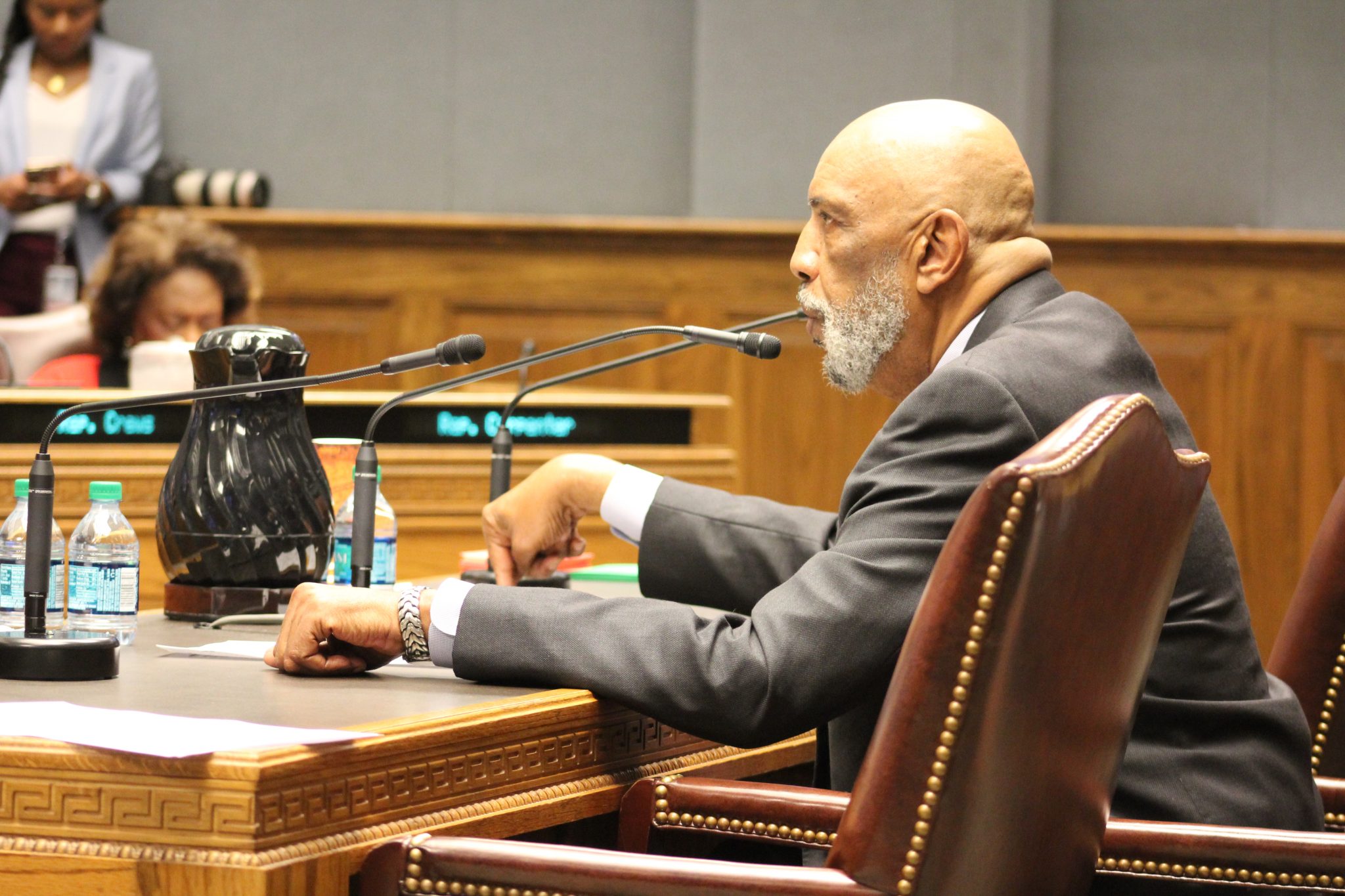269
Madeline MeyerLSU Manship News Service
BATON ROUGE -- The House Administration of Criminal Justice advanced controversial bills on Tuesday that would abolish the death penalty and lower sentences for first-time marijuana possession.
Rep. Terry

Madeline Meyer/LSU Manship News Service | Rep. Terry Landry, D-New Iberia, testified Tuesday for his bill to abolish the death penalty.
House committee advances bill abolishing death penalty
previous post


